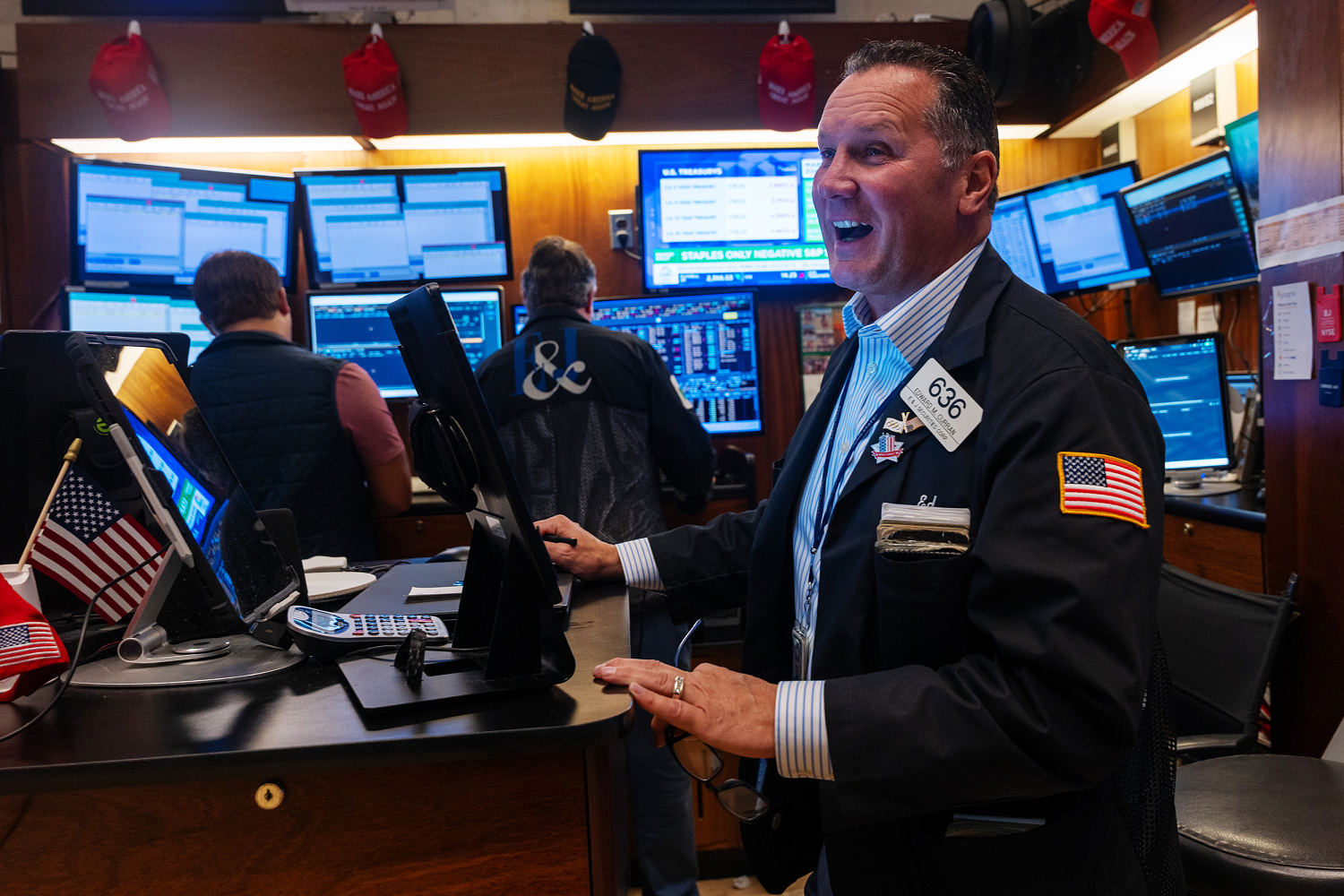
A government shutdown. A weakening labor market. Stubborn inflation.
None of it has seemed to matter for the stock market. At least not yet.
Stocks closed moderately lower Tuesday, but it was the first down day in more than a week. The broad S&P 500 and tech-heavy Nasdaq indexes have seen more than 30 record closes this year. Futures were slightly higher Wednesday morning.
With other parts of the economy showing strain, the market gains are fueling concerns about an economy in which the wealthiest U.S. households continue to thrive even as lower- and middle-income families languish.
“It points out the bifurcation of the economy,” said Steve Sosnick, chief strategist at Interactive Brokers financial group.
Two forces have been driving much of the market’s recent runup: artificial intelligence investments, and the prospect of lower interest rates.
Sosnick pointed to calculations showing that spending on building out AI infrastructure, like data centers, is now responsible for an enormous part of economic growth this year.
That spending hasn’t led to much new job creation in the overall economy: 2025 is on pace to be one of the worst years for new payrolls added this century. The government shutdown has delayed the release of official jobs data for September, but on Tuesday, private equity giant Carlyle said its internal indicators suggested the U.S. economy added just 17,000 new payrolls last month. Last week, payrolls processor ADP released a report that also showed a significant jobs-market slowdown.
But the AI boom has helped stock investors grow even wealthier. According to data cited by Barron’s investment magazine, the seven tech stocks that comprise the so-called “Magnificent 7” were responsible for approximately two-thirds of the S&P 500‘s 3.65% gain last month, and have powered about 41% of the index’s nearly 15% gain this year.
“I think there’s always a little bit of K-shaped nature to the economy,” Sosnick said. “But it went from looking like a small ‘K’ to a capital ‘K.’”
Meanwhile, economic uncertainty shows no signs of letting up.
Government shutdowns typically have a limited impact on markets and the economy. This time could be different, though. As the shutdown enters its second week, the White House has begun threatening mass layoffs, while President Donald Trump and other GOP officials are questioning the government’s obligation to issue back pay. With government spending continuing to represent a significant share of the economy, either of these developments could have consequences for growth should they be enacted.
Trump also continues to roll out tariff plans, only to delay their implementation. The latest example is a proposed tariff on imported trucks that was slated to go into effect Oct. 1, before it was delayed a month.
The recent weak jobs data have been enough for the Federal Reserve to conclude that it must lower interest rates to support hiring. Investors now put the odds that the central bank will announce at least two more rate cuts at its final two meetings this year at more than 80%. Yet some Fed members also remain concerned about the pace of inflation, which remains well above the central bank’s 2% target. Carlyle also found the inflation rate hitting as much as 3.3% in the services sector last month.
The worsening jobs data is likely to exacerbate the economy’s bifurcated nature if lower rates continue to result in stronger stock gains, Sosnick said. A lackluster “real” economy and a booming stock market “can coexist for quite some time,” he said. On Tuesday, the New York Federal Reserve said consumer expectations had deteriorated, with worsening outlooks for both the labor market and inflation.
Tuesday’s stock decline could be a warning, however. The market appeared to be derailed by a report from online news outlet The Information that questioned whether one of the key players in the recent AI runup, Oracle, has the ability to successfully finance its commitment to purchase chips from another AI heavyweight, Nvidia.
Some tech analysts had already grown concerned about the circular nature of the AI investment cycle that’s begun to give the impression that the same funds are simply being passed back and forth among the same handful of companies. A representative for Oracle did not respond to a request for comment about the story.
Although the story was solely focused on Oracle, Sosnick said it had pulled the rest of the market down Tuesday because it suggested other companies whose stocks have benefited from AI may also be facing similar difficulties.
With the beneficiaries of the current economic environment already proving increasingly narrow, it wouldn’t take much for a turn in their fortunes to set off a broader downturn, said Mark Zandi, chief economist at Moody’s Analytics.
“It feels like the economy is right on the precipice, and it wouldn’t take much to push it over edge,” he said. “It feels very tenuous and vulnerable, and any little thing that doesn’t stick to script could cause it to go into a recession.”


